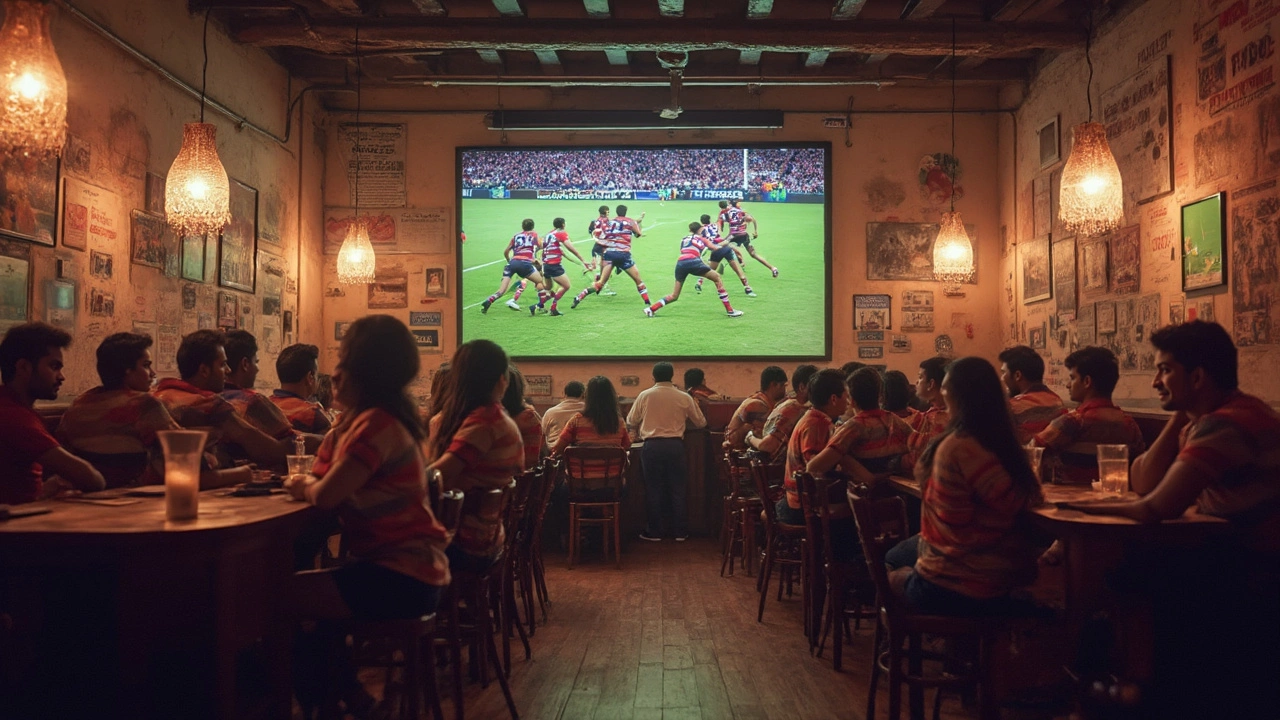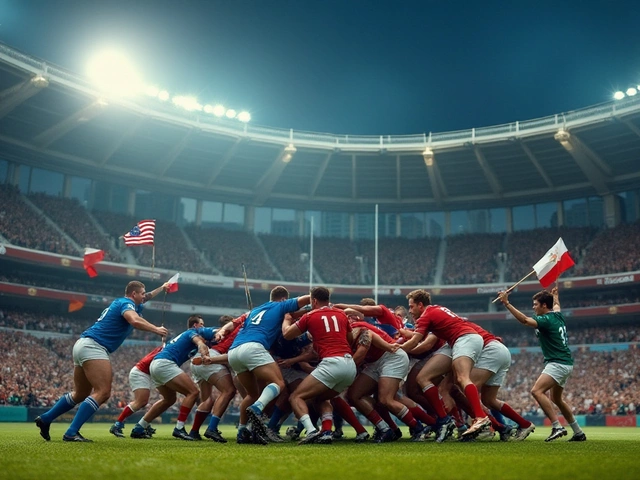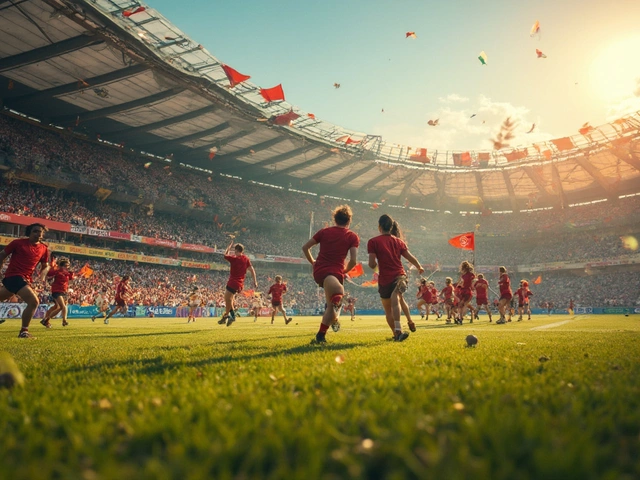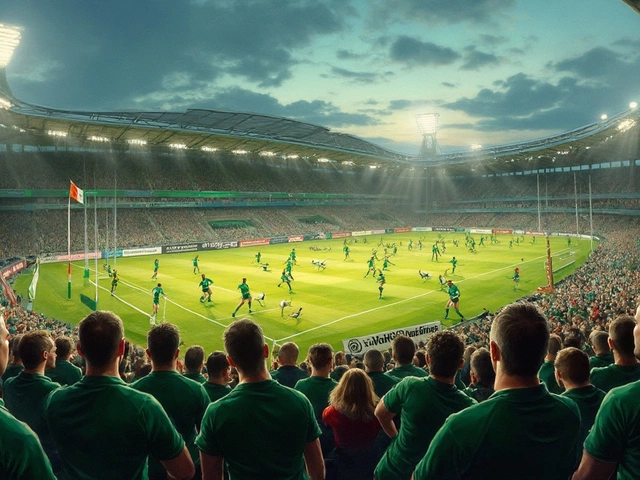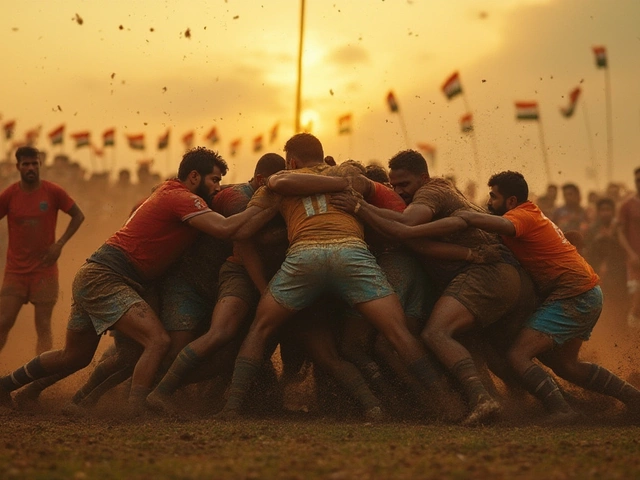Ask someone in Britain about rugby, and you might get a slightly puzzled look. That's because, in the UK, rugby isn’t just rugby. There are actually two main types—rugby union and rugby league—and the locals take the difference pretty seriously.
If you’re talking to fans in the south of England, saying just 'rugby' usually means you’re on about rugby union. Head north or chat with someone from Yorkshire, and 'rugby' might get you a follow-up question: 'Union or league?' This split isn’t just about a different set of rules, but ties back to class divides and regional rivalries that go back over a hundred years. It's like football and American football—similar roots, but totally different games once you scratch the surface.
Knowing what to call each game is handy if you want to fit in at a pub or rugby ground. If a Brit shouts, 'Fancy a bit of rugger?' they're usually talking about a union match. But you might also hear blokes refer to 'the league' or even just 'league' when talking about rugby league. Confusing? Only at first. Stick with it and the differences start making sense real quick.
- The Origin of 'Rugby' in Britain
- Union vs League: What’s the Difference?
- Popular British Slang for Rugby
- Why Fixtures and Terms Still Matter Today
The Origin of 'Rugby' in Britain
You might think rugby started as an ancient sport, but it’s not actually that old. The story kicks off in 1823 at Rugby School, a place for wealthy boys in Warwickshire. According to school legend, a student called William Webb Ellis got fed up during a game of football (the kicking kind Brits call 'football' today), picked up the ball, and simply ran with it. Most historians admit there’s a bit of myth mixed in, but that’s how the story stuck and explains the name.
The first proper rules got written down in 1845 by pupils at Rugby School. Back then, there was a lot of debate over how rough the game should be—stuff like, should players be able to hack each other’s shins? Each school had its own spin until a bunch of clubs from London met up at a pub in 1871 to sort things out. That meeting created the Rugby Football Union, which shaped the game as we know it.
- Rugby School gave the game both its name and early rules.
- William Webb Ellis is the famous, but maybe made-up, pioneer.
- The Rugby Football Union formed in 1871 to make things official.
Here’s a fun fact: Rugby split into two sports in 1895. Clubs in the north of England didn’t want to play for free, while the south stuck to strict amateur rules. So the north broke away and started what we now know as rugby league. This split still matters in Britain today and is a big reason you’ll hear such different terms depending on where you are.
| Year | Event |
|---|---|
| 1823 | William Webb Ellis's famous run at Rugby School |
| 1845 | First written rugby rules |
| 1871 | Rugby Football Union formed |
| 1895 | Split into rugby union and rugby league |
The takeaway? What Brits call 'rugby' is tangled up with class, region, and a bit of schoolboy rebel history. So that question, "What do Brits call rugby?" isn’t as simple as you’d expect.
Union vs League: What’s the Difference?
This bit confuses almost everyone new to British rugby. There are two separate games here—rugby union and rugby league—and they’re different in more ways than just the number of players. If you walk into the wrong club and use the terms the wrong way, you’ll get funny looks, so it’s worth knowing what sets them apart.
First off, here’s a super clear breakdown:
| Feature | Rugby Union | Rugby League |
|---|---|---|
| Players on Field | 15 | 13 |
| Main Regions | UK South, Wales, Scotland, Ireland | North of England, Australia, New Zealand |
| Half Length | 40 minutes | 40 minutes |
| Scoring (Try) | 5 points | 4 points |
| Main Competitions | Six Nations, Premiership | Super League, Challenge Cup |
The biggest visual clue is the number of players. Union has fifteen, so there are more scrums, rucks and the game can look a bit more packed. League has thirteen, which makes the game faster with more open runs. The way teams win the ball back is different too. In league, a team has six tackles to score before the ball is handed over. Union lets teams keep fighting for the ball almost endlessly, which leads to those big, messy pile-ups.
Another big deal is where the games are popular. Rugby union is the big one in southern England, most of Wales, and right across Ireland and Scotland. Rugby league is king in northern England—places like Leeds or St Helens. If folks around you are mad about the Six Nations, you’re in union country. If people talk Super League playoffs, you’ve landed in league territory.
In case you’re watching and trying to join the chat: in union, expect more set pieces and complicated rules, while league is straight to the action and high scoring. Both are great to watch live, and both have their diehard fans. Now you know why people in Britain get annoyed if you mix them up!
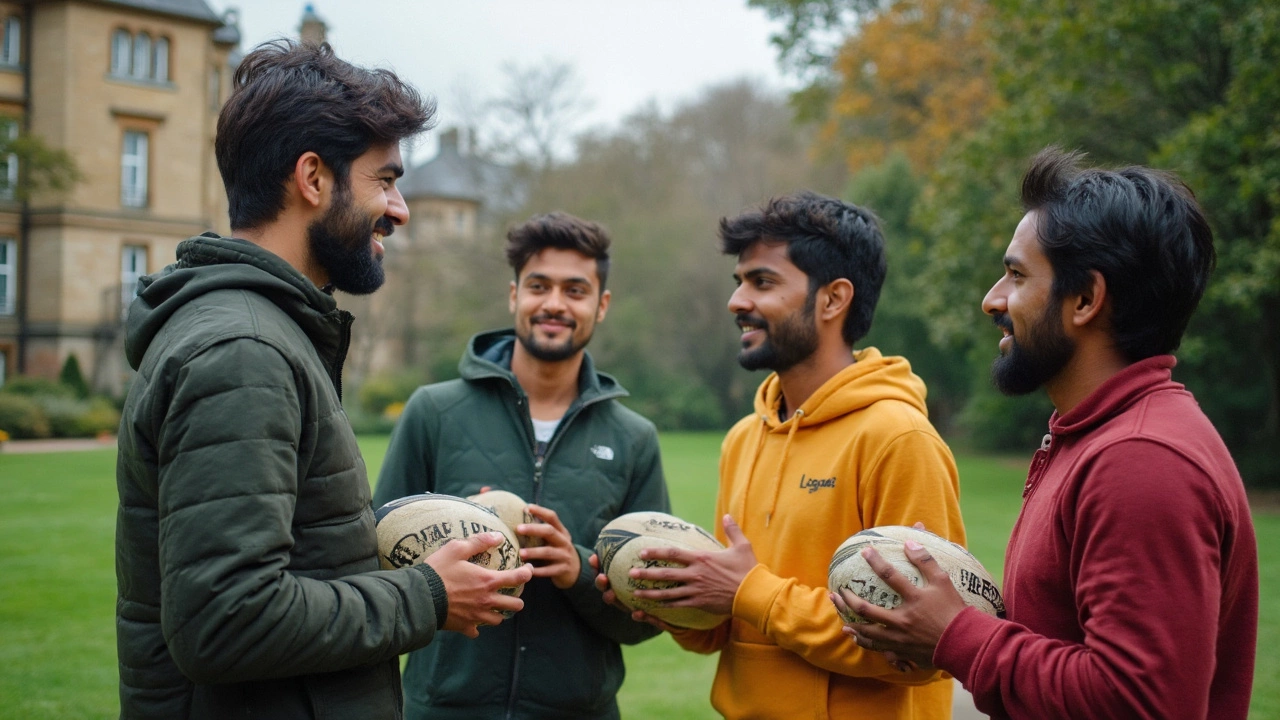
Popular British Slang for Rugby
The way Brits talk about rugby says a lot about their local loyalties. Maybe you’ve heard someone mention 'rugger'—that’s probably the most classic slang for rugby, especially when talking about rugby union. You’ll hear, 'Up for a rugger match on Saturday?' in schools, pubs, and old sports clubs all the time.
If someone’s a real fan, you might also hear 'the XV' (pronounced 'fifteen'), a nod to the number of players in a rugby union team. For rugby league, you’re more likely to hear 'the league', 'footy' in some northern towns, or even just people using the town or team name, like 'heading up to see Hull play league.'
Players have their own slang, too. A 'forward' is called a 'big lad' or 'pack', while the 'backs' are sometimes 'the flashy lads'—think the speedy or strategic ones. Tries (getting the ball over the line) are sometimes called 'touchdowns' in old school union circles, though most just stick with 'try.' The goalposts are jokingly called 'the sticks.' And if someone gets tackled, you might hear, 'He got absolutely flattened!'
- Rugger – classic rugby union slang, traditional but still alive
- The League – shorthand for rugby league, especially in the north
- The XV – rugby union team, pronounced 'fifteen'
- Pack – forwards, the bigger, stronger players
- The Sticks – slang for the goalposts
British rugby slang varies by region, and sometimes even from club to club. Here’s a quick taste of how often some of these nicknames pop up in chat, from a recent fan survey (2024):
| Slang Term | Common Usage (%) |
|---|---|
| Rugger | 61 |
| The League | 42 |
| The XV | 35 |
| Pack | 58 |
| The Sticks | 29 |
Bottom line: pay attention to the slang at matches or in the pub—copying what locals say can win you instant respect.
Why Fixtures and Terms Still Matter Today
If you ever ask a Brit about upcoming rugby fixtures, don’t be surprised if they want to know exactly which kind of rugby you mean. It’s not just picky—fans really care about whether you’re talking about rugby union or rugby league. The words you use actually signal where your loyalties sit, and fans pick up on that fast. Mixing up your terms might sound small, but it can get you weird looks if you slip up at the wrong club or pub.
Fixtures themselves are a big deal. Rugby in the UK follows a set calendar for league matches and cup ties, and it’s common for people to plan weekends months ahead. The annual Six Nations tournament in February and March isn’t just sport—it’s an event. The Challenge Cup final dominates rugby league’s summer schedule. Dates and terms aren’t just words—they anchor communities and help everyone follow the action.
| Event | Type | Month | UK TV Viewers (approx.) |
|---|---|---|---|
| Six Nations | Union | Feb-Mar | 8-10 million per match |
| Super League Grand Final | League | Oct | 1-2 million |
| Challenge Cup Final | League | Aug | 1 million |
Language matters, too. If you call rugby union "rugby," you’ll blend right in at Twickenham or most of southern England. Use “rugger” when joking with old-school fans or in posh circles, but don’t drop that word up north—league fans rarely call it that. In Yorkshire or Lancashire, just saying “league” is enough to clue everyone in—it’s their pride and joy. If you want to keep conversations smooth, stick to the right names for the right crowd.
Here’s a quick cheat sheet for getting the terms right:
- "Rugby" = Usually rugby union (especially in the south or at most national level events)
- "Rugger" = Rugby union, informal, usually in jokes or old-school lingo
- "League" = Always rugby league, especially in the north
- "Fixtures" = Upcoming matches (don’t ask for 'games'—the right word is 'fixture' or 'match')
Sticking to these basics saves confusion and helps you fit in whether you’re watching the rugby fixtures at home or heading out with mates. British sport is built on tradition, and the small details—words, dates, fixtures—still make a huge difference today.
